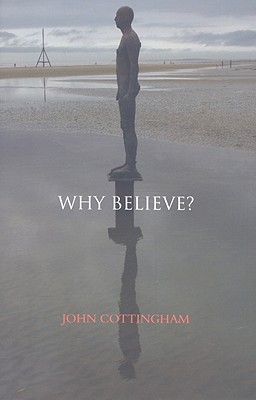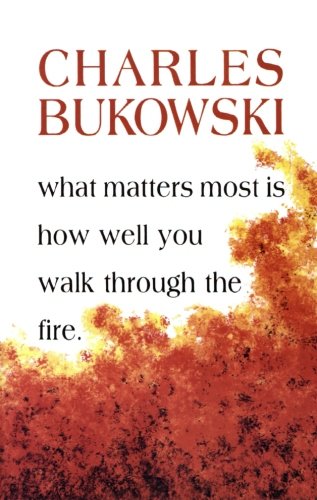What Matters Most is How Well You Walk Through The Fire by Charles Bukowski Anyone considering reading one of Bukowski’s novels (e.g. Post Office) should first read his poetry; this book is easy to dip in and out of and gives a great feel for what he’s about. Bukowski baffled me when I first read him, aged about fourteen. As a sheltered girl who went to Catholic school his raw and dirty reality attracted me because it was a world away from my own. His voice is confrontational and not often likeable, but I think its honesty is beautiful. ‘The Genius of the Crowd’ is my favourite poem in What Matters is How Well You Walk Through The Fire. In this poem, Bukowski’s frightening depiction of human nature really challenged me. Although I’m not entirely convinced by his pessimism, there’s truth in the claim that the more generously you give to a person, the more power you give that same person to hurt you. Depressing, but thought provoking, which I think could be said about all of his work.
 Non-Fiction (in the UK; Stranger than Fiction in the US)
by Chuck Palahniuk
Non Fiction is a collection of essays that could almost be Chuck Palahniuk’s autobiography. Unlike most autobiographies, however, Palahniuk is great judge of what the reader will find interesting, never failing to intrigue. Although only one of three sections of the book is titled ‘personal’ (the others being ‘portraits’ and ‘people together’), each essay is deeply revealing of the peculiar life and mind of the author. This collection of essays cover topics of great breadth: interactions with people at the Rock Creek Lodge Testicle Festival (essentially an orgy), encounters with celebrities such as Marilyn Manson, the tragedy of his father’s murder and the transition of his novel Fight Club to Hollywood blockbuster. Palahniuk’s minimal style captivates, disgusts and amuses the reader with incredible ease, so much so that reading each essay feels like a lesson in how to write. So of course I’ve read this many times. I would recommend this as either an introduction to Palahniuk, or a way to get to know him better after reading books such as Choke, Fight Club or Invisible Monsters.
Non-Fiction (in the UK; Stranger than Fiction in the US)
by Chuck Palahniuk
Non Fiction is a collection of essays that could almost be Chuck Palahniuk’s autobiography. Unlike most autobiographies, however, Palahniuk is great judge of what the reader will find interesting, never failing to intrigue. Although only one of three sections of the book is titled ‘personal’ (the others being ‘portraits’ and ‘people together’), each essay is deeply revealing of the peculiar life and mind of the author. This collection of essays cover topics of great breadth: interactions with people at the Rock Creek Lodge Testicle Festival (essentially an orgy), encounters with celebrities such as Marilyn Manson, the tragedy of his father’s murder and the transition of his novel Fight Club to Hollywood blockbuster. Palahniuk’s minimal style captivates, disgusts and amuses the reader with incredible ease, so much so that reading each essay feels like a lesson in how to write. So of course I’ve read this many times. I would recommend this as either an introduction to Palahniuk, or a way to get to know him better after reading books such as Choke, Fight Club or Invisible Monsters.

Why Believe by John Cottingham This is where the theology nerd in me comes out. I went into university quite confused about religion, not committing much to belief or non belief. Saying that you’re “religious” is sort of embarrassing today. With the rise of New Atheists such as Richard Dawkins, there’s a commonplace association of stupidity with religion. This is derived from an understanding of religion as a system of beliefs about the world that the religious person must subscribe to. Cottingham is interesting because he presents an understanding of religion that is about engaging in practices individually and in a community, rather than ticking boxes on a list of beliefs. His argument is that practice can improve the quality of some people’s lives, and belief is secondary to this. So, neither belief nor practice need conflict with reason, science or intelligence (as the New Atheists would have you believe). I don’t think Cottingham adequately explores the value of nonreligious practices and communities (such as those based on Buddhism), but it’s a thought-provoking read for anyone interested in the role of religion today.


